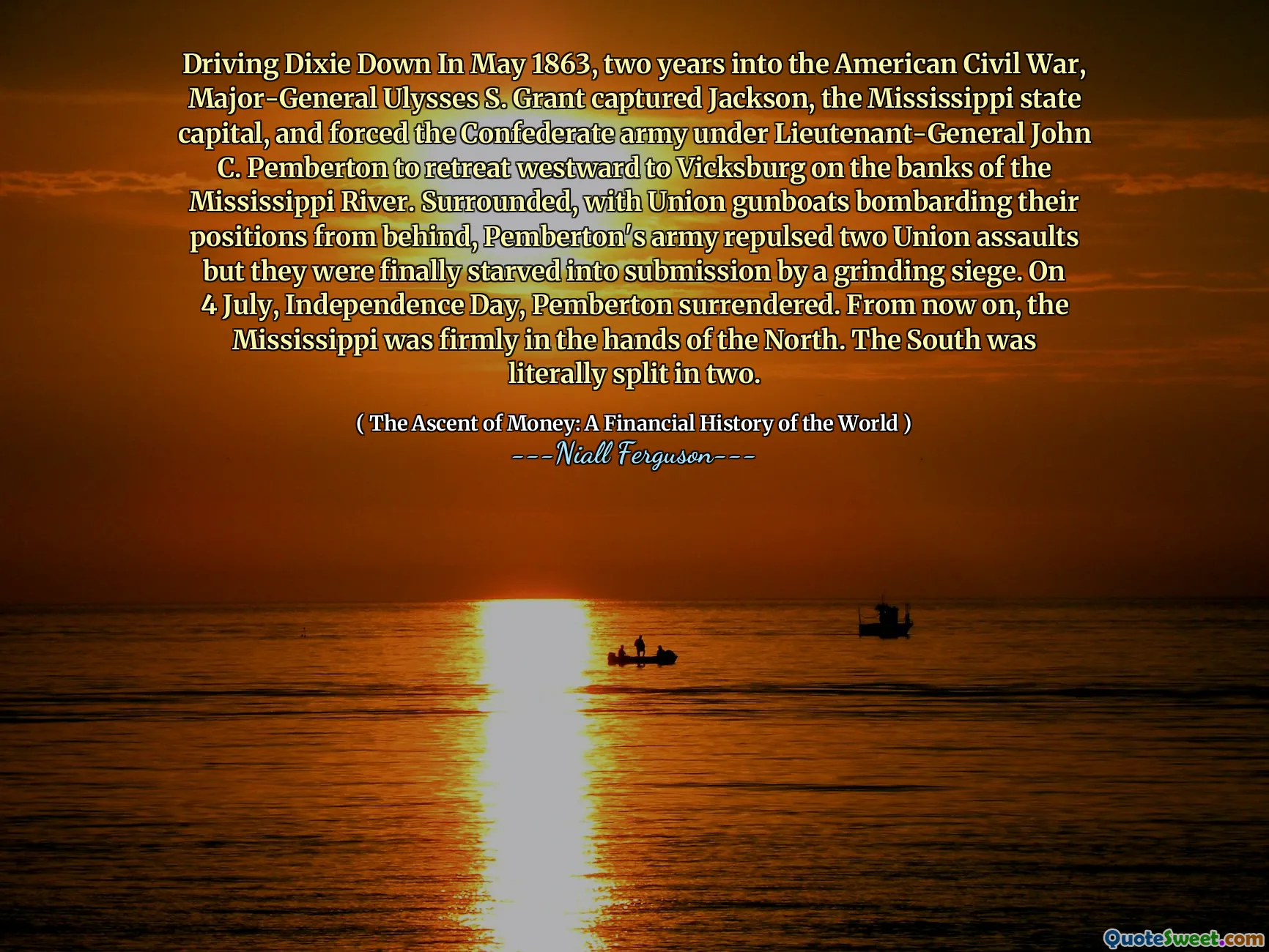
Driving Dixie Down In May 1863, two years into the American Civil War, Major-General Ulysses S. Grant captured Jackson, the Mississippi state capital, and forced the Confederate army under Lieutenant-General John C. Pemberton to retreat westward to Vicksburg on the banks of the Mississippi River. Surrounded, with Union gunboats bombarding their positions from behind, Pemberton's army repulsed two Union assaults but they were finally starved into submission by a grinding siege. On 4 July, Independence Day, Pemberton surrendered. From now on, the Mississippi was firmly in the hands of the North. The South was literally split in two.
In May 1863, during the American Civil War, Major-General Ulysses S. Grant successfully captured Jackson, Mississippi's capital, leading to the Confederate army led by Lieutenant-General John C. Pemberton retreating to Vicksburg. The Union forces then surrounded the city, bombarding it with gunfire while Pemberton's troops managed to fend off two attacks. However, after a prolonged siege, they were ultimately forced into surrender.
On July 4, 1863, Pemberton capitulated, marking a significant turning point in the war. This defeat ensured that the Union had control over the Mississippi River, effectively splitting the Confederacy in half and solidifying Northern power in the region.











